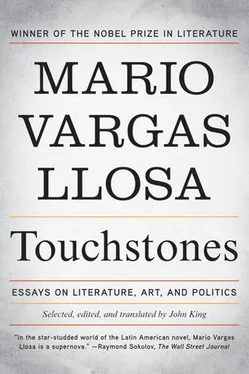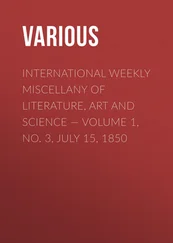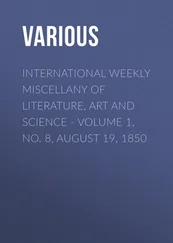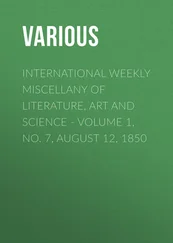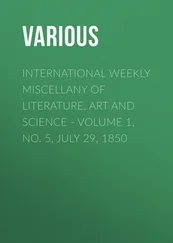The ruling of the British magistrate Roland Bartle is another step towards the extradition of General Pinochet to Spain to be tried for crimes committed against human rights during the seventeen years of the dictatorship he presided over. This is a historical judgement that extends well beyond the particular case of Chile, and should be greeted with jubilation by all those millions of people across the world who have been persecuted, ill-treated or silenced for their ideas, and by all those who are not content for the culture and practice of democracy to be the prerogative of a mere handful of countries, while the barbarity of despotism and autocracy holds sway over seventy-five per cent of the planet.
People who, without being in favour of dictatorial regimes, question the right of Spain and the United Kingdom to extradite the ex-dictator, put forward a series of arguments that, for me, do not stand up to close scrutiny. The most common of these arguments is pragmatic: the international pursuit of Pinochet is endangering the Chilean transition to democracy and might destabilise the present government, aggravate and inflame the political debate, and even provoke a new coup. This doom scenario is not borne out by the facts. Quite the reverse: the reality is that, although it is very virulent, the dispute between those for and against Pinochet being tried outside Chile is being spearheaded by radical minorities, while most of Chilean society follows it at a distance and with increasing indifference. The national debate about the forthcoming elections is much more intense, and in this debate — something that the international media tend to leave out — the Pinochet affair is no longer a central issue, in what seems like a tactical (and very sensible) agreement between the main candidates, Lagos (centre left) and Lavín (centre right).
There is no serious argument to support the gloomy prediction that the Pinochet affair will destroy Chilean democracy. The opposite is true, as the New York Times has recently shown in a report on the state of justice in the country. The prosecution of Pinochet in Spain has seen a revival of legal initiatives in Chile against the crimes and abuses committed during the dictatorship, and in the last twelve months twenty-six officers accused of these crimes have been imprisoned after court cases. This is a very clear demonstration that Chilean judges have a greater willingness and freedom to act on this issue now that the obstacle to the normal development of justice — the presence of the ex-dictator, who, as a senator elected for life to one of the ruling bodies of the Chilean state, cannot be impeached — has been removed. Instead of weakening democracy, international action against Pinochet is helping to complete and accelerate the democratisation process that is already firmly rooted in Chile.
Another objection to the prosecution of Pinochet by Judge Baltazar Garzón is based on nationalism: the violation of national sovereignty implied in judging the ex-dictator outside his own country. This is an extraordinarily anachronistic argument which ignores the current historical moment of globalisation, the systematic erosion of borders and of the nineteenth-century concept of the nation state. The economy has led the great modern onslaught against this narrow and exclusive view of sovereignty, which is incompatible with the interdependence that the development of science, technology, information, commerce and culture has established between all the societies of the world at the end of the twentieth century. Why should justice be excluded from this general process of internationalisation of contemporary life? In fact, it is not excluded. No one objects if common criminals, drug-runners or smugglers are prosecuted and sentenced outside their ‘countries’; quite the reverse — it is normal for governments to seek the joint action of other countries against their criminals (for example, with regard to terrorism). Why should crimes and abuses against human rights be a separate case? Are these crimes less serious from an ethical or legal point of view?
The importance of the Pinochet affair is, precisely, that it sets a precedent to end the impunity that a great many little tyrants and satraps have enjoyed. For up until now, after perpetrating their misdeeds, robbing the public purse and amassing large fortunes, they have been able to retire and enjoy a magnificent old age, free of any sanction. Now everyone from Baby Doc to General Cedras, from Idi Amin to Menghistu, from Fidel Castro to Saddam Hussein, and so many others of the same ilk know that they will not be able to live peacefully, that wherever they go and wherever they are, the law can reach them and demand that they answer for their crimes. The deterrent effect that this might have on potential coup plotters should not be underestimated.
There are people who argue that instead of dissuading future dictators, the legal pursuit of Pinochet will encourage those who have usurped power to remain entrenched, and not commit the ex-dictator’s error of giving up office, that had made him invulnerable to sanctions. People that think this must have an image of dictators as archangels, for they believe that they retire from power because one day they will become good or democratic, and that we must encourage them towards this moral and political conversion by guaranteeing them impunity in advance. The truth is that never in history has a dictator stopped being a dictator by choice, through a sudden spiritual, ideological or ethical transformation. All of them would like to stay in power for ever (this is true of many democratic governments too, of course), and if they do not manage to do so it is simply because they cannot, because a particular situation at a specific moment forces them, irresistibly, to leave. Fidel Castro, Colonel Gaddafi, Saddam Hussein and their kind will not cut short by a single moment their stay in power if the legal prosecution of Pinochet is stopped.
Another reason given against the Pinochet prosecution is the different criteria that some media and some intellectuals and politicians use to judge dictatorships: why do the satraps of the left not deserve the same condemnation as the satraps of the right? Has Pinochet been more cruel and bloodthirsty to his opponents during his seventeen years as dictator than Fidel Castro during his forty years of tyranny? Anyone reasonably well informed knows that, although they are ideologically different, both men are responsible for unspeakable abuses against very basic human rights, which should mean that they would receive the same condemnation and sanctions from the international democratic community. However, as we know, while not one democratic government defended Pinochet, only a tiny number of democratic governments dare to call Fidel Castro what he really is: a little satrap with bloodstained hands. And in a few days, twenty or so Spanish American presidents and prime ministers are going to travel down to Havana, in a grotesque political coven, to embrace this repugnant character and to legitimate him, signing with him once again, without their hands trembling or their faces falling with shame, a declaration in favour of freedom and legality as the necessary framework for the development of the Spanish American community.
Of course, this double standard in morality (this ‘moral hemiplegia’ in the words of Jean-François Revel) when it comes to dealing with dictators of the right or of the left is outrageous, in particular when it comes from the mouths or the pens of cynical people who call themselves democratic or, even more ridiculous, progressive. However, to turn this sense of outrage into a reason for exonerating Pinochet of any guilt since (for now) one cannot punish him and Fidel Castro in the same way, would give carte blanche to the excesses of fascist dictators since communist dictators are often less vulnerable than them to international sanction. It would be like saying that that since we have no absolute and universal system of justice, then humanity should abandon any form of justice, however relative and partial. This is a fundamentalist and Manichean attitude that is at variance with social reality, where it is simply not possible to aspire to perfection and the absolute in any sphere. In the penal system it is always preferable that a murderer be judged and sentenced even though many others escape punishment for their crimes. The same is true for crimes against human rights. The ‘Pinochet affair’ is encouraging from a moral, legal and political point of view because it opens the door, in future, for other dictators — whatever their politics — to be investigated and punished for their crimes, and also because, in this particular case, concrete victims of torture, murder, imprisonment and robbery are receiving lawful, if belated, redress. This is good news for all victims of persecution and abuse the world over, a sign that, finally, a new era is beginning in the history of humanity in which the great political criminals can be taken to court to answer for their crimes, without being able to hide behind ‘national sovereignty’ or amnesties that they instituted when they were in power, and go off into retirement with a clear conscience and their pockets stuffed with money. The fact that it is a right-wing and not a left-wing dictator who is the first in what will be in the future — and this depends on all of us, not just on Judge Baltazar Garzón — a long list of satraps to be punished is an incidental detail that should not in any way affect the transcendent importance of the Pinochet affair from a legal point of view. It depends on genuine democrats, on the true lovers of liberty and law throughout the world, to ensure that what has happened with Pinochet is not the exception but rather the rule, not a mere victory for the ‘left’ but a first effective legal act aimed at bringing about a drastic reduction in political murders and torture across the world, irrespective of who commits them and on whatever religious or political pretext. To some extent, by putting Pinochet in the dock, the Spanish and British judges have summoned to appear in court with him an entire harmful and immemorial dynasty.
Читать дальше
